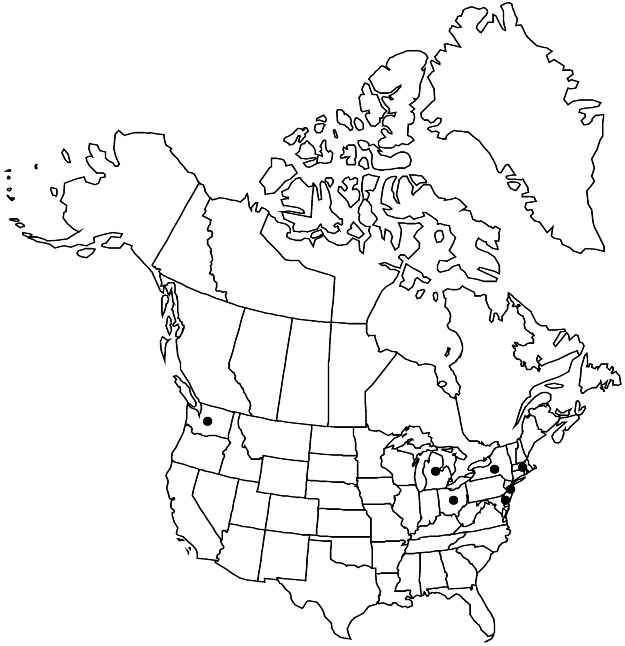Silene conica subsp. conica
Plants annual; taproot slender. Stems erect or decumbent, simple or branched at base, 15–50 cm, coarsely puberulent, stipitate-glandular distally. Leaves: proximal leaf pairs connate, blade 1–3-veined, linear to narrowly lanceolate or oblanceolate, 2–5 cm × 1.5–6 mm, apex acute; basal leaf blades tending to be oblanceolate and somewhat broader, coarsely puberulent on both surfaces. Inflorescences 1–13-flowered, bracteate; bracts narrowly lanceolate-acuminate, to 20 mm. Pedicels ascending, 1–3 cm, stipitate-glandular, puberulent. Flowers 10–12 mm diam.; calyx prominently ca. 30-veined, umbilicate, narrowly conic in flower, conic-ovoid but scarcely inflated in fruit, lobed to 1/3 of length with 5 narrow, acuminate lobes ca. 5 mm, 8–15 × 5–7 mm, puberulent, glandular or not, veins parallel; corolla conspicuous, pink, rarely white or dark red, clawed, much exceeding sepals, claw ca. equaling calyx, limb shallowly 2-lobed, oblong, 3–6 mm, appendages 2, 1–2 mm; stamens equaling calyx; stigmas 3, equaling calyx. Capsules ovoid, 8–10 mm, with narrow orifice, opening by 6 teeth; carpophore less than 1 mm. Seeds dark brown, reniform, 0.6–0.9 mm broad, tuberculate. 2n = 20 (Europe).
Phenology: Flowering summer.
Habitat: Dry, sandy or gravelly waste places, roadsides, pasture and arable land
Elevation: 0-300 m
Distribution

Del., Mass., Mich., N.J., N.Y., Ohio, Wash., Eurasia.
Discussion
Subspecies conica, a rare adventive weed, is very similar to Silene conoidea, from which it can be separated, with difficulty, by the smaller size of most of its parts. It is also similar to S. coniflora, which has a calyx with fewer veins and shorter teeth.
Selected References
None.